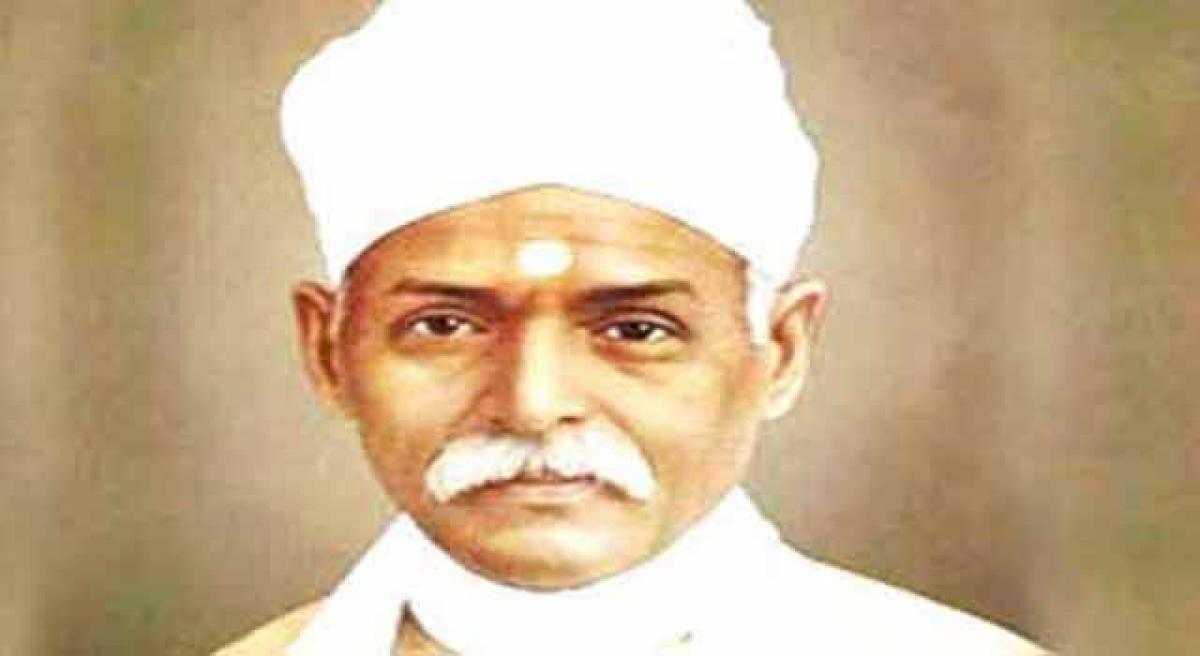Pandit Madan Mohan Malaviya (1861–1946)

He was an Indian educationist and politician notable for his role in the Indian independence movement and as the four time president of Indian National Congress.
He was an Indian educationist and politician notable for his role in the Indian independence movement and as the four time president of Indian National Congress.
He was respectfully addressed as Pandit Madan Mohan Malaviya and also addressed as 'Mahamana’
Malaviya is most remembered as the founder of Banaras Hindu University (BHU) at Varanasi in 1916, which was created under the B.H.U. Act, 1915.
The largest residential university in Asia and one of the largest in the world, having over 35,000 students across arts, sciences, engineering, medical, agriculture, performing arts, law and technology. Malaviya was Vice Chancellor of Banaras Hindu University from 1919–1938
Malaviya was the founder of Ganga Mahasabha at Haridwar in 1905, Malaviya was the President of the Indian National Congress on two occasions (1909, 1918).
He left Congress in 1934. He was a member of the Hindu Mahasabha. He was a president of the special session of Hindu Mahasabha in Gaya in 1922 and in Kashi in 1923.
Malaviya was one of the founders of Scouting in India He also founded a highly influential, English-newspaper, The Leader published from Allahabad in 1909.
He was also the Chairman of Hindustan Times from 1924 to 1946. His efforts resulted in the launch of its Hindi edition named Hindustan Dainik in 1936.
Malaviya was posthumously conferred with Bharat Ratna, India's highest civilian award, on 24 December 2014, a day before his 153rd Birth Anniversary.
He remained a member of the Imperial Legislative Council from 1912 and when in 1919 it was converted to the Central Legislative Assembly he remained its member as well, till 1926.
Malaviya was an important figure in the Non-Cooperation Movement However; he was opposed to the politics of appeasement and the participation of Congress in the Khilafat movement
In 1928 he joined Lala Lajpat Rai, Jawaharlal Nehru and many others in protesting against the Simon Commission, which had been set up by the British to consider India's future.
Just as the "Buy British" campaign was sweeping England, he issued, on 30 May 1932, a manifesto urging concentration on the "Buy Indian" movement in India. Malaviya was a delegate at the Second Round Table Conference in 1931.
However, during the Civil Disobedience Movement, he was arrested on 25 April 1932, along with 450 other Congress volunteers in Delhi, only a few days after he was appointed in 1932 at Delhi as the President of Congress after the arrest of Sarojini Naidu In 1933, at Calcutta, Malaviya was again appointed as the President of the Congress.
Thus before Independence, Malaviya was the only leader of the Indian National Congress who was appointed as its President for four terms.
On 25 September 1932, an agreement known as Poona Pact was signed between Dr. Ambedkar (on behalf of the depressed classes among Hindus) and Malaviya (on behalf of the other Hindus).
The agreement gave reserved seats for the depressed classes in the Provisional legislatures, within the general electorate and not by creating a separate electorate
In protest against the Communal Award which sought to provide separate electorates for minorities, Malaviya along with Madhav Shrihari Aney left the Congress and started the Congress Nationalist Party. The party contested the 1934 elections to the central legislature and won 12 seats.
April 1911, Annie Besant met Malaviya and they decided to work for a common Hindu University at Varanasi. Besant and fellow trustees of the Central Hindu College, which she had founded in 1898, also agreed to Government of India's precondition that the college should become a part of the new University.
Thus Banaras Hindu University (BHU) was established in 1916, through a Parliamentary legislation, the 'B.H.U. Act 1915', and today it remains a prominent institution of learning in India.
In 1939, he left the Vice-Chancellorship of BHU and was succeeded by S. Radhakrishnan, who later became the President of India
In 1933, Malaviya started Sanatana Dharma from BHU, a magazine dedicated to religious, dharmic interests.
Also Read:














